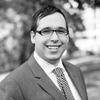Ethics of Protecting the Judiciary from Unfair Criticism: Attorneys’ Obligations Under Model Rule 8.2
This webinar offers 90 minutes of Ethics credit.
Recording of a 90-minute CLE video webinar with Q&A
This CLE webinar will discuss attorneys' duty to defend judges and the independence of the judiciary and the First Amendment implications. The panel will discuss why judges are being attacked, whether attorneys must defend judges, the difference between intimidation and criticism, the requirements of Model Rule 8.2, the Constitutional limits on these requirements especially in light of recent Supreme Court decisions in Alvarez and Counterman, and the consequences of violating it. The panel will also discuss the investigation and removal of judges.
Outline
- Why judges are attacked and by whom
- Criticism vs. intimidation
- Legislative actions to oversee state court judges
- Impeachment and removal of judges
- Model Rule 8.2
- Responses of major bar associations
- American Bar Association
- National Bar Association
- Federal Bar Association
- Lawyers for Civil Justice
- Defense Research Institute
- American Association for Justice
- American College of Trial Lawyers
- State bar associations
- ABOTA Protocol for Responding to Unfair Criticism of Judges
- Factors for consideration in determining whether to respond to criticism
- Timing, form, drafting consideration, and content of the response
- Recommendations
Benefits
The panel will review these and other important questions:
- What is unjust criticism of a judge or judicial candidate and can a lawyer be penalized for engaging in such “unjust criticism”?
- Should the media be admonished to stop noting who appointed particular judges?
- Are "traditional efforts to defend judges and courts unjustly criticized"?
- What is the proper procedure for impeaching and removing judges?
- Are political "attacks" on the judiciary ever justifiable?
- How have national bar associations responded and have these responses respected the First Amendment rights of lawyers?
Faculty

Amber Bevacqua-Lynott
Senior Counsel
Buchalter
Ms. Bevacqua-Lynott is Senior Counsel in the Firm’s Portland and San Diego offices, and a member of the... | Read More
Ms. Bevacqua-Lynott is Senior Counsel in the Firm’s Portland and San Diego offices, and a member of the Firm’s Professional Responsibility and Litigation Practice Groups. She provides guidance and legal representation to attorneys, licensed professionals, and other business clients, including firms and in-house legal departments. Her practice centers on legal ethics, risk management, and discipline defense. Ms. Bevacqua-Lynott acts as outside counsel to clients in a variety of industries, providing advice and counsel on all manner of ethics issues, including conflicts, confidentiality, malpractice, risk management, and fee issues.
Close
Daniel M. Ortner
Attorney
Foundation for Individual Rights and Expression
Mr. Ortner joins FIRE after four years litigating on behalf of free speech and equality under the law at the Pacific... | Read More
Mr. Ortner joins FIRE after four years litigating on behalf of free speech and equality under the law at the Pacific Legal Foundation. He has written and spoken extensively about First Amendment issues, including in The New York Times, The Hill, and The Epoch Times. Mr. Ortner's law review articles on free speech have been published in the Catholic University Law Review, BYU Law Review, and Virginia Journal of International Law among others. He is a member of the Virginia and California bars. He is also admitted to practice before the Supreme Court of the United States and several United States Courts of Appeals and United States District Courts.
Close
Joan Vestrand, JD
Professor
Cooley Law School
Ms. Vestrand has expertise in legal and judicial ethics, attorney disciplinary law and procedures; character &... | Read More
Ms. Vestrand has expertise in legal and judicial ethics, attorney disciplinary law and procedures; character & fitness (bar admission) standards and procedures; the moral development of children and adults; the behavioral science of ethical decision making; building, protecting, and sustaining personal success; skills and practices for superior leadership; the use and effect of restorative justice initiatives in the community, courts and schools; Native American peacemaking and its effectiveness as a form of dispute resolution.
Close